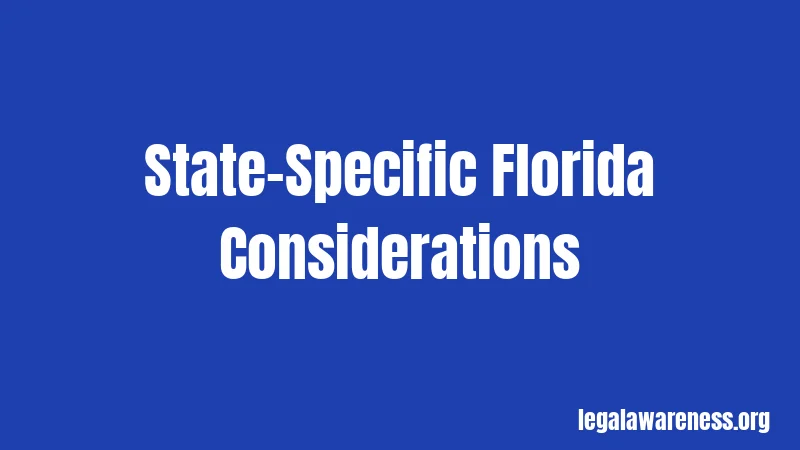Per Diem Laws in Florida (2026): A Practical Guide for Employees and Employers
Most people have no idea how per diem laws actually work. Seriously. But if you’re traveling for work in Florida, the rules matter. They can affect your paycheck and your taxes. Let’s break down exactly what you need to know.
Per diem laws protect workers who travel for their jobs. They also guide employers on how to handle travel expenses. In Florida, these rules exist to keep things fair for everyone involved.
What Is Per Diem?

Per diem literally means “by the day” in Latin. It’s money your employer gives you to cover meals and other daily expenses when you travel for work. Instead of keeping all your receipts, you get a set amount each day.
Think of it like this. You’re sent to a conference in Miami for three days. Your company might give you $50 per day for meals and incidentals. That’s $150 total, no receipts needed. Pretty straightforward, right?
Per diem exists because traveling costs money. Your meals cost more away from home. You might need a rental car. There are tips for hotel staff. These small costs add up fast. Per diem is meant to cover them without hassle.
How Per Diem Works in Florida
Here’s where it gets practical. Per diem isn’t about what you actually spend. It’s about what the IRS says you should spend. The federal government sets standard rates for every U.S. city and county.
Florida has different per diem rates depending on where you travel. Miami might have one rate. Orlando another. A small rural county has its own rate. Your employer should follow the federal per diem rates set by the General Services Administration (GSA).
Wondering if your employer is following the right rates? Check the GSA website. They update rates regularly. Your company should use rates that match the city where you’re traveling. If they give you less than the federal rate, that’s their choice. But you can’t claim the higher federal amount on your taxes if your employer already gave you money.
Federal Per Diem Rules That Apply in Florida

The Internal Revenue Service (IRS) sets rules about per diem. Florida employers must follow these federal rules. You can’t be taxed on per diem payments if they follow the federal standard.
Basically, if your employer gives you the official GSA rate, that money isn’t counted as income. You don’t pay taxes on it. This is huge because it saves you money at tax time.
Here’s what matters. Your company needs to give you the payment before or during your trip. They can’t give you per diem after you return and call it tax-free. The timing matters for the tax rules to apply.
Your employer also needs to document your trip. They need to know where you went and how long you were there. This documentation keeps everything legal. Without it, the IRS might decide the payment is taxable income instead.
Confused about what counts as a business trip? Let me break it down. You have to travel more than 50 miles from your home or normal workplace. The trip has to be for work purposes. Personal trips don’t qualify, even if they’re far away.
Meal and Incidental Expense Rules
Per diem covers two things. Meals and incidentals. Meals are obvious. Incidentals include tips, laundry, and parking. They’re the little costs that pop up when you travel.
The meal portion of per diem can be claimed a certain percentage. For example, if the daily rate is $50, maybe $30 is for meals. The remaining $20 covers incidentals. The exact breakdown depends on the GSA rates for your specific location.
Here’s something important. Your employer can choose to reimburse you in two ways. They can give you the full per diem amount. Or they can pay you only for actual meal expenses if you provide receipts. Either way is legal in Florida, as long as it’s fair and consistent.
Wait, it gets more interesting. If you stay somewhere with free meals provided, your per diem might be reduced. That’s because you didn’t actually spend money on those meals. Some employers adjust the rate based on what the hotel includes.
State-Specific Florida Considerations

Florida doesn’t have separate per diem laws that override federal rules. The state follows the IRS guidelines. Your employer should use the GSA rates that apply to Florida locations.
One thing to know: Florida has no income tax. This is actually great news. You’re not paying state income tax on your per diem payments. This makes per diem even more valuable in Florida compared to states with income tax.
Basically, Florida employers have flexibility. They can pay you per diem, actual expense reimbursement, or a combination of both. The key is documenting everything properly and following federal rules.
How Employers Must Handle Per Diem
Your employer has responsibilities too. They can’t just make up per diem amounts. They need to follow rules or they risk tax trouble with the IRS.
The first rule: use official rates. Your company should use the GSA rates published for the location where you’re traveling. These rates are updated regularly. Your employer should check them before each trip or travel period.
Your employer also needs to establish a per diem policy. This policy should clearly explain how much you get and when you get it. It should state what counts as a business trip. A written policy protects both you and your company.
Documentation is critical. Your employer should keep records showing where you traveled, how long you were there, and how much per diem you received. This trail is essential if the IRS ever audits the company.
Hold on, this part is important. Your employer can’t just pay per diem without a business purpose. The trip has to be legitimate work-related travel. If you’re driving 100 miles to visit a client, that’s business travel. If you’re visiting your vacation home, that’s not.
What Happens If Rules Aren’t Followed
Let’s talk about what goes wrong when rules are ignored. If your employer doesn’t follow federal per diem rules, the payments become taxable income. That means you pay income tax on the money.
For example, say your employer gives you $100 per day in per diem for a week in Tampa. If they don’t follow GSA rates and don’t document the trip properly, those payments might be taxable. You could owe federal tax on $700.
This isn’t just bad for you. Your employer also faces consequences. The IRS can audit the company’s records. They can demand back taxes. The company might face penalties for not following rules.
Honestly, this is why documentation matters so much. When everything is properly recorded, both you and your employer are protected. The IRS is much less likely to challenge a well-documented per diem arrangement.
If you suspect your employer isn’t following the rules, what can you do? First, ask questions. Request the official policy. Ask what rates they’re using. Most issues are honest mistakes, not intentional rule-breaking.
Tax Implications for Employees
Here’s where your wallet comes in. Per diem has real tax effects. Understanding these effects helps you plan better.
If your employer pays you GSA per diem correctly, you don’t pay federal income tax on it. You also don’t pay Social Security or Medicare taxes on it. That’s significant savings. For a week of per diem, you might save hundreds in taxes.
But here’s the catch. If your employer doesn’t follow the rules, that money becomes part of your taxable income. Suddenly you’re paying federal tax, state tax (if applicable), Social Security, and Medicare taxes on it.
You’re not alone if this confuses you. Many people don’t realize how much the rules affect their actual take-home pay. This is why it’s worth asking your employer about their per diem policy.
If your employer reimburses actual expenses instead of per diem, different rules apply. You need receipts. You need to document everything. But only actual expenses are reimbursed, which might be less than per diem.
Recent Changes and Updates in 2025-2026
Federal per diem rates change annually. The GSA typically updates rates in October for the coming year. If you travel regularly, check the rates before your trip.
Florida’s major cities have updated rates. Miami, Orlando, Tampa, and Jacksonville all have their own per diem rates. Smaller cities and rural areas also have rates. Don’t assume all Florida locations have the same rate.
One trend to watch: more employers are using actual expense reimbursement instead of per diem. They ask you to submit receipts for everything. This approach is legally fine, but it requires more paperwork from you.
Another development: some companies now use per diem apps. These apps help track where you traveled and automatically apply the correct GSA rates. It’s technology making compliance easier for everyone.
Special Circumstances and Exceptions
What if you travel with family? Basically, per diem only covers you as the employee. Your spouse or children don’t get per diem. Their meal costs are your personal expense.
What about meal costs if your employer provides free meals? That’s a situation where per diem gets adjusted. If your hotel includes breakfast and dinner, your per diem for meals decreases. You only get reimbursement for the meals you actually paid for.
What if you travel for multiple purposes, work and pleasure? This is tricky. You can only claim per diem for the work portion of your trip. If you extend your trip for vacation, those extra days don’t qualify.
Some employees drive instead of fly. Does per diem change? No, per diem is the same whether you fly or drive. Your travel method doesn’t affect the daily rate. However, mileage for driving is reimbursed separately under different rules.
How to Document Your Travel for Per Diem
Here’s how to protect yourself. Keep records of your trips. You don’t need to keep meal receipts for per diem, but you need proof of travel.
Write down where you went and the dates. Email confirmations work. Calendar entries work. Anything that shows where you were and when you were there counts as documentation.
For mileage, keep a mileage log. Write down the date, starting location, ending location, and miles driven. This documentation is important if the IRS ever asks questions.
Keep your employer’s per diem policy in a safe place. Print it out or save it digitally. If there’s ever a dispute about rates or payments, you want proof of what your company promised.
If you receive actual expense reimbursement instead, definitely keep all receipts. Keep your hotel confirmation. Keep restaurant receipts. Keep parking and taxi receipts. These documents are required for actual expense reimbursement.
How to Report Per Diem on Your Taxes
Here’s the good news. If your employer followed the rules correctly, you don’t need to report per diem on your taxes at all. It’s completely tax-free.
The money your employer gave you is already handled correctly on your W-2. It’s not reported as income. You don’t fill out any special forms for it.
But if your employer didn’t follow the rules, the situation changes. The per diem becomes taxable income. It shows up as part of your wages on your W-2.
If this happens to you, you report it like regular income. You’ll see the amount on your W-2, and you include it in your taxable income when you file your return.
Wondering if your per diem situation is correct? Ask your employer directly. Ask what rates they use. Ask for documentation. Most employers are happy to explain their policy. If they avoid answering, that might be a red flag.
What Employers Can and Cannot Do
Your employer can set their own per diem policy, but it must follow federal rules. They can’t make up rates that are significantly lower than GSA rates. They can’t claim those rates are tax-free. The IRS won’t accept made-up rates.
Your employer can require you to report where you traveled. They can require documentation of your trip. These requirements are totally legal and actually protect both of you.
Your employer cannot force you to accept per diem. They cannot refuse to reimburse legitimate business expenses just because they pay per diem. If your actual expenses exceed per diem, talk to your manager.
Your employer cannot withhold per diem because they disagree with where you traveled. If the trip is legitimate work travel, you’re entitled to the per diem according to company policy.
Personally, I think transparency helps here. Good employers clearly explain their per diem policy when you’re hired. They post GSA rates. They explain documentation requirements. This openness prevents confusion and disputes.
Frequently Asked Questions
Is per diem the same as a salary raise? No, per diem is a reimbursement for travel expenses, not additional income. It’s meant to cover costs you incur while traveling for work. Salary is separate from per diem.
Can I keep the per diem if I don’t spend it? If your employer gives you federal per diem rates, yes, you can keep it. That’s the whole point of per diem. You don’t need to prove you spent it. However, if you’re reimbursed for actual expenses, you can only keep money for amounts you actually spent.
What if I travel in Florida but live out of state? You still use Florida’s per diem rates for the days you’re in Florida. If your trip crosses state lines, you use the rates for each state on the days you’re there. Your home state’s rules don’t apply while you’re traveling for work.
Do I need to file anything special for per diem on my taxes? If your employer followed the rules correctly, no. The per diem is already handled on your W-2. If the per diem is taxable for some reason, it’s reported as regular income and you file normally.
Can my employer reduce per diem if I don’t travel much? Your employer can change their per diem policy for the future. But they should apply the same policy to all employees in the same situation. They can’t single out one person for a lower rate unless there’s a legitimate business reason documented in company policy.
What’s the difference between per diem and expense reimbursement? Per diem is a set daily amount with no receipts required. Expense reimbursement requires you to provide receipts for everything. Per diem is simpler but might pay less if your actual expenses are low. Expense reimbursement pays for actual costs but requires more documentation.
Do I pay taxes on per diem in Florida? No state income tax in Florida, so per diem is never taxed at the state level. Federally, if your employer follows the rules, it’s tax-free. Only if the rules aren’t followed do you owe federal tax on it.
Who decides the per diem rates? The federal government through the General Services Administration (GSA) sets per diem rates. Employers must follow these rates. The rates vary by city and location within Florida. Rates are updated annually.
Final Thoughts
Per diem laws in Florida are actually pretty straightforward once you understand the basics. Your employer should follow federal GSA rates. They should document your travel. You should keep records of where you went and when. That’s really it.
The key takeaway: per diem is valuable because it’s tax-free income when done correctly. That makes it worth understanding. If your employer isn’t following the rules, it’s worth asking them about it.
Stay informed about the current GSA rates for places where you travel. Ask your employer to show you their per diem policy. Keep good records of your trips. When in doubt, reach out to your company’s human resources or finance department. They can answer questions and clear up any confusion.
Now you know the basics. You understand the rules. You can talk confidently with your employer about per diem. That’s a powerful position to be in when it comes to protecting your paycheck.
References
General Services Administration Per Diem Rates
IRS Publication 463: Travel, Gift, and Car Expenses
